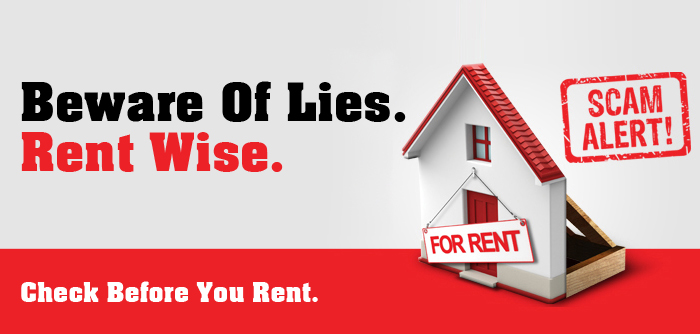While the Internet is an extremely useful tool, it has also made it easier for criminals to prey on prospective tenants – with the number of incidences on the increase.
The stress of finding an apartment is almost inevitable – the search, the competition, the upfront money, most renters avoid frequently moving for these reasons. But sometimes the rental process goes from merely aggravating to actually illegal. While a majority of rental listings are legitimate, rental scams are out there, and not always easy to spot.
Here are some of the most common rental scams out there, along with suggestions for how to avoid them.
1. Asking for money before seeing the apartment
Imagine finding a terrific online listing with a request for money upfront. This may not seem entirely unreasonable if you’re in a competitive market. And unlike some noticeable scam listings of the past, which might include misspellings or photos stolen from another site, these write-ups seem completely aboveboard. It’s important to recognize fraudsters constantly adapt to improve their odds of successfully stealing money from renters. They’ll even go so far as to make their fake listings look increasingly legit.
Still, there should never be a cost for admission, so if the listing asks for cash up front, walk away. There is never a reason to send money without viewing an apartment or meeting in person especially if the request is for a money transfer. This is because it’s basically impossible to stop payment on a wire transfer, unlike a check or credit card payment. Visit www.remax-kenya.co.ke for legit listings.
2. A copy-and-pasted ad
Say a legitimate landlord writes up a compelling description of a real vacant apartment and posts the listing online. A scammer can very easily copy and paste the listing but significantly lower the price, which will generate furious interest. Otherwise known as the “clone scam,” this maneuver is especially aimed at someone who’s busy or renting from out of town and is willing to put down money before seeing the rental unit.
Another clue will be a request for an unusually high security deposit, since the scammer is seeking to take off with as much money as possible, and as fast as possible.
3. An MIA landlord
The setup: A scam artist finds a vacant property because it’s either bank-owned, a vacant vacation home, or maybe even rented by the scammer who plans to pull off this scheme several times over. They then insist they’re out of the country, sick, or otherwise detained, but still want first, last, and a security deposit. Don’t do it! Regardless of where they live, a legitimate landlord or property manager will be willing to arrange for someone to meet you and show you inside the unit.
4. Withholding your deposit
This happens all too often. Your landlord behaves normally throughout the duration of your lease. But gets cagey about the deposit when the time comes for you to move out, saying they’ll refund your deposit later. Or they’ll claim excessive damages to keep the security deposit to make the necessary repairs, even though you left the place in great shape. To avoid the latter, make sure to take photos before you leave (and, ideally, when you’re moving in) to prove you didn’t trash the apartment. If the deposit still hasn’t materialized, send a certified-mail request for its return. If that doesn’t work, you might be looking at small claims court.
Other red flags to look out for include:
Save your time and money by choosing a RE/MAX agent, the most trusted name in real estate, having been in business for more than 40 years and served millions of clients worldwide.
Have you spotted a rental scam red flag? Share your experiences and tips in the comments!

